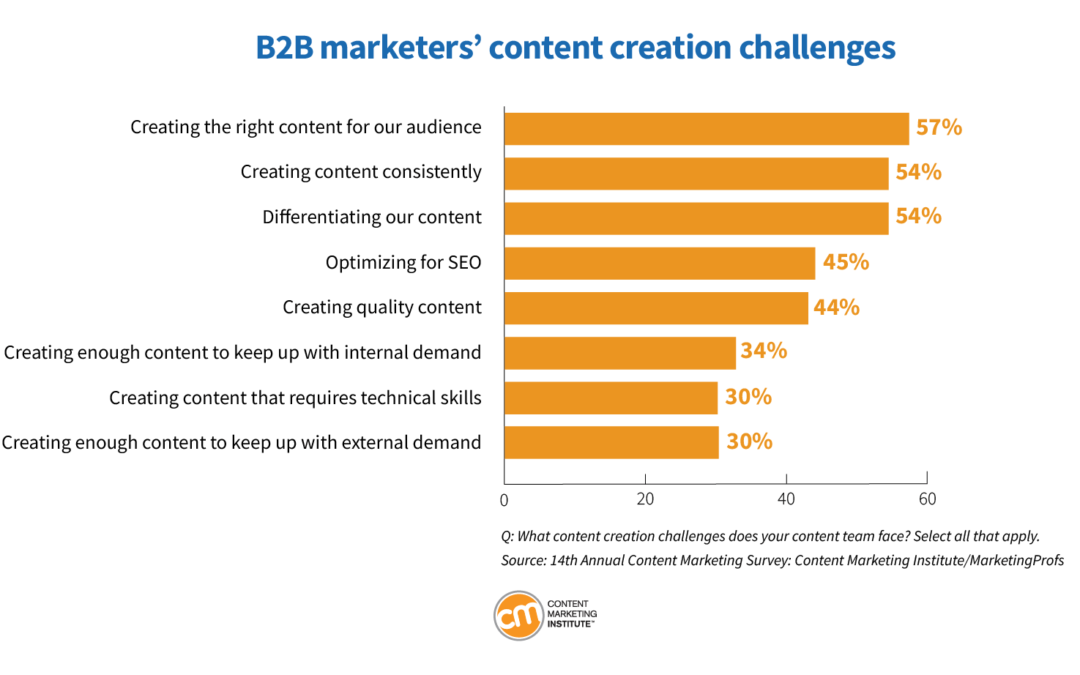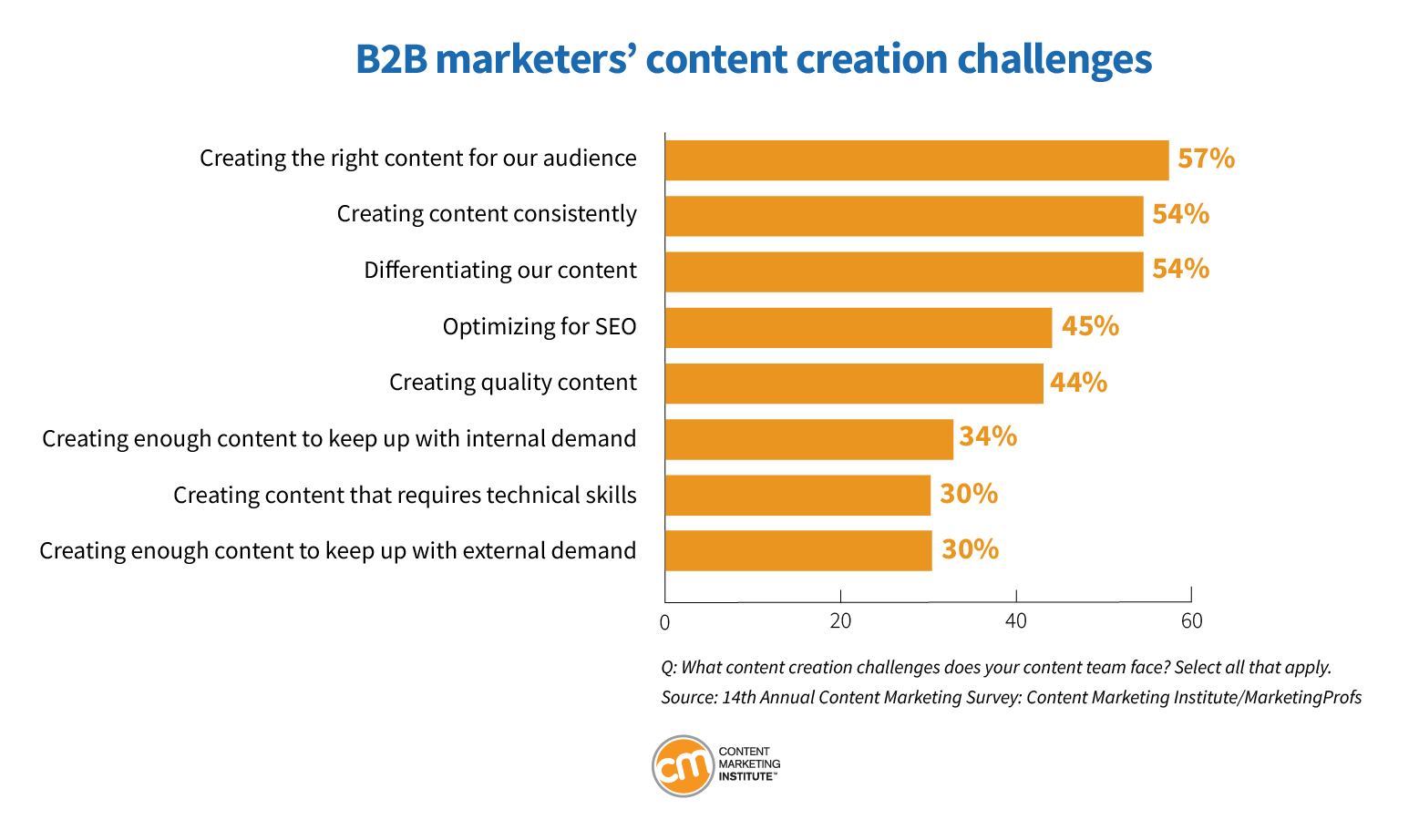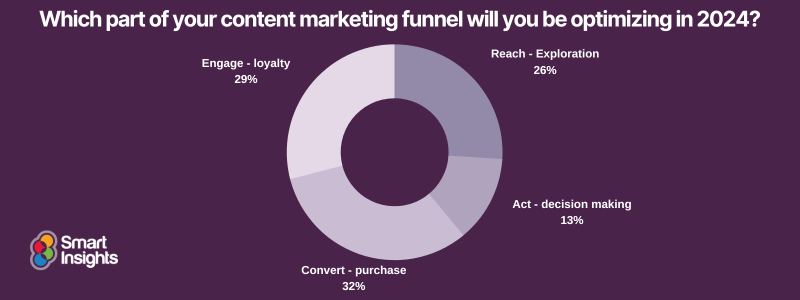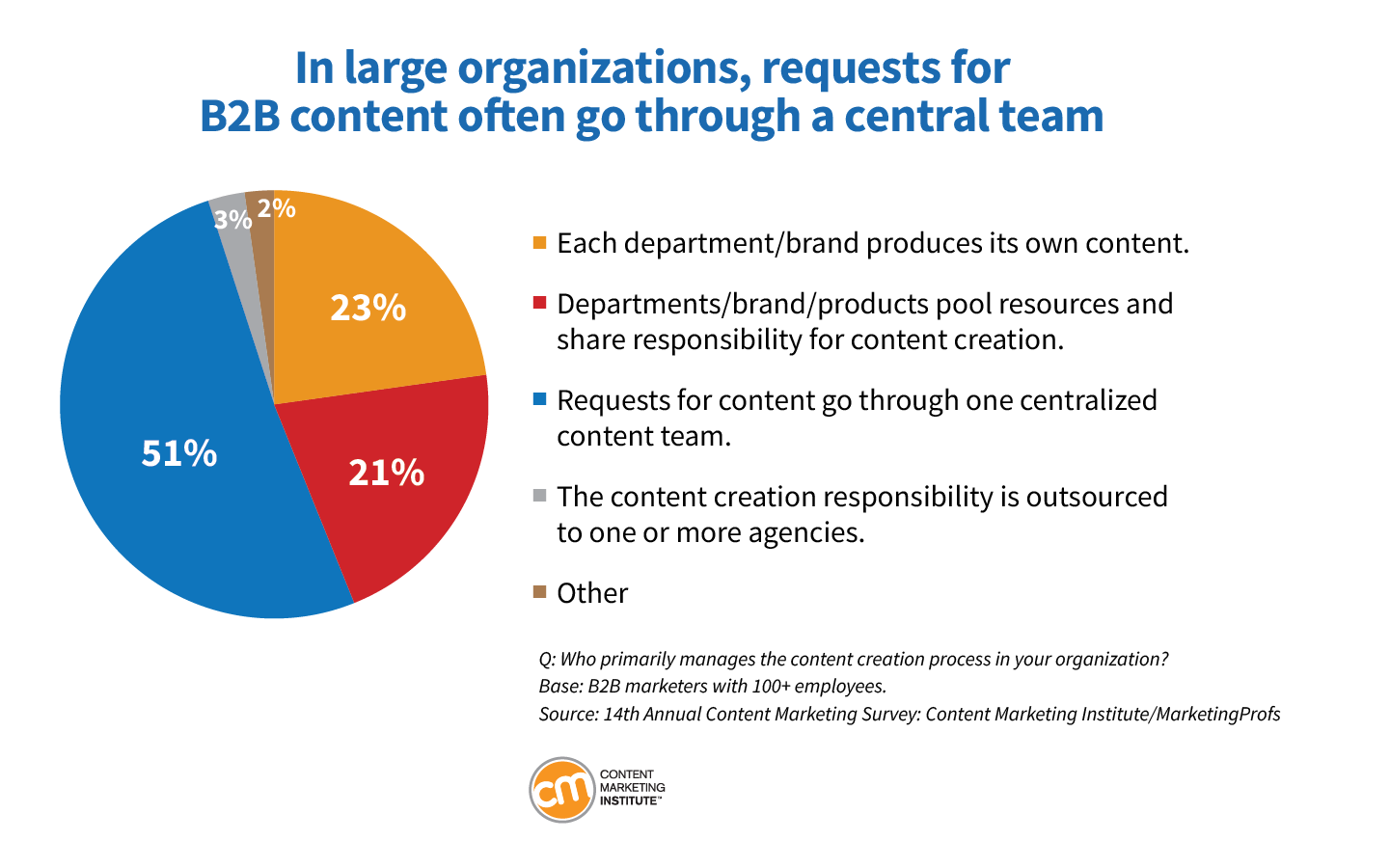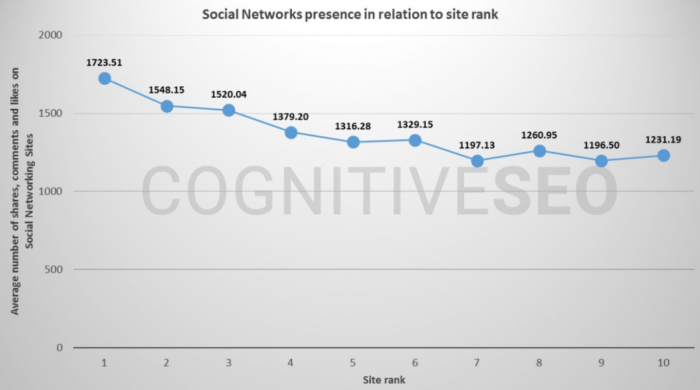When times are tough, content marketers must keep assessing and making changes to their content strategies to ensure their content assets are working as efficiently and effectively as they can
The best content strategists in 2023 already understand that, as well as integrating our marketing and digital marketing strategies, strategic content planning helps focus the purpose of content marketing, reduce duplication, and accelerate proofing/sign off.
1. Customer-centric content creation
In their recent survey, the Content Marketing Institute found that more than half of marketers cite finding the right content for their audience to be their biggest challenge.
At the close of 2023, the year when AI has taken centre stage, it’s interesting to see B2B content creators reporting a mostly human-focused marketing challenge. As we all know, content sits in the sweet spot between science and art, so it makes sense that marketers are not losing sight of that when assessing the content landscape.
Having witnessed 2 helpful content updates from Google this year, web copywriters, bloggers, and SEOs will be particularly mindful of producing content that answers their readers’ questions, and adds value to their search experience.
The helpful content system aims to better reward content where visitors feel they’ve had a satisfying experience, while content that doesn’t meet a visitor’s expectations won’t perform as well.
– Google Search Central, September 2023
2. Content marketing across the funnel
Our poll found a mixed bag when we asked our LinkedIn network which part of their content marketing funnel they would be optimizing in 2024.
3. Integrated content marketing
The CMI also found that, among larger companies (100-plus employees), 70% integrate their content strategies.
This is going to be more important than ever going forward as our customers’ experiences of our brands on different platforms become more intertwined. Even amongst our own preparation for 2024, we’re already seeing customer-focused strategies shape email marketing trends and social media marketing trends.
Meanwhile, research by Cognitive SEO based on 23 million shares found a strong linear correlation between the average number of shares, comments, and likes on social networking sites and site rank. So whilst ‘social signals’ are still not officially acknowledged by Google, it is safe to say that combining SEO and social to distribute your content seems to be a wise move.
4. AI-assisted content marketing
Amongst the many new opportunities afforded by AI, the fusion of multiple different platforms and channels is the kingpin. ChatGPT itself has shared 10 ways that AI can benefit omnichannel marketing strategies:
- Analyzes omnichannel customer data efficiently.
- Personalizes content, ensuring consistent cross-channel experience.
- Offers real-time insights for agile adjustments.
- Streamlines marketing tasks, saving time through automation.
- Predicts trends in customer behavior.
- Can recommend products for enhanced cross-selling and upselling.
- Can boost customer support across channels with chatbots.
- Real-time A/B tests optimize omnichannel marketing campaigns.
- Improves cost-efficiency and marketing ROI.
- Enables scalable, omnichannel marketing strategies.

